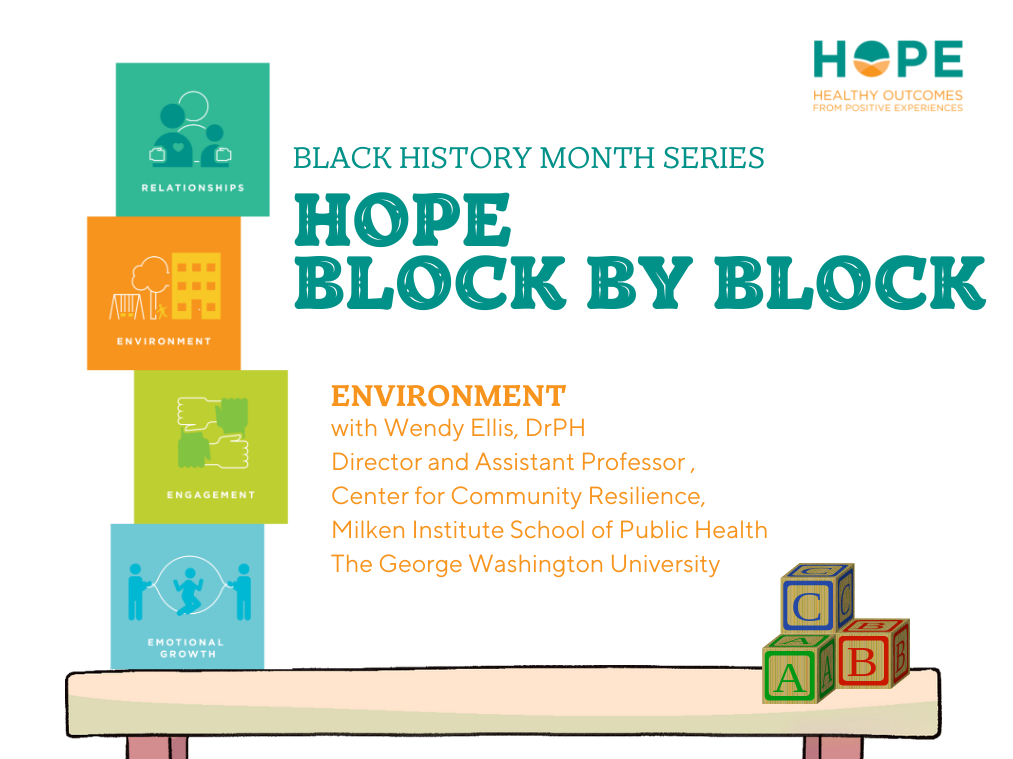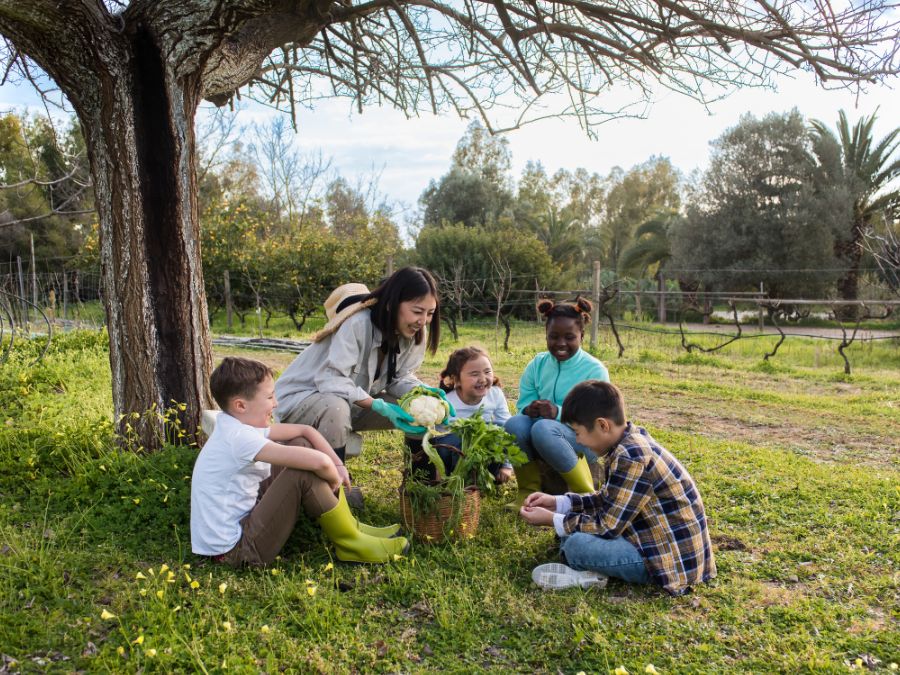
Dr. Wendy Ellis, joins HOPE’s Director of Training and Technical Assistance, Amanda Winn, for the second vlog in our new series, HOPE Block by Block. This series highlights the work of Black practitioners, scholars, researchers, and community activists during the month of February. In this second episode, Dr. Ellis will address the HOPE building block of environment. The environment building block is about children having access to safe, stable, and equitable places to live, learn, and play.
Dr. Wendy Ellis is the Director of the Center for Community Resilience at the Milken Institute School of Public Health at George Washington University. The Center for Community Resilience seeks to improve the health of communities by enabling partnerships to connect policy, program, and practice. These partnerships will address adverse childhood experiences in the context of adverse community environments as described in Dr. Ellis’ “The Pair of ACEs”. The Pair of ACEs focuses on equity and prevention and has influenced local initiatives, programs, public health initiatives, and local, state and federal policy. Building Community Resilience networks have successfully used the Pair of ACEs to lead systems and policy change to address long-standing economic, social, and health disparities by partnering with community, integrating service delivery, and building political will for change.
The Building Community Resilience (BCR) collaborative and networks are implementing the BCR process based on Dr. Ellis’ research about designing a strategic approach for multiple systems to align resources, programs, and initiatives with community-based partners to address adverse childhood experiences, and environments. The BCR approach provides a standard process to reach a custom solution to promote resilience in communities by improving access to supports and buffers that help individuals and communities thrive. The BCR process has been adopted by governmental agencies and coalitions in countries across the globe.
Dr. Ellis will be delivering the Keynote Address at this year’s virtual HOPE Summit – Growing HOPE. Register now to hear Dr. Ellis talk more about her work and be the first to learn about the new Resilience Tree Tool that will be unveiled at this event.
The HOPE National Resource Center believes that Black history is American history, and we are honored to have Dr. Ellis join us in recognizing the contributions of this community. Celebrating Black history is relevant to all four Building Blocks of HOPE, and our February vlogs will share ways for organizations and communities to promote access to the Building Blocks of HOPE for Black and African American families throughout the year. Although we are focusing on Black history during February, we will continue to acknowledge and honor Black history all year long.


